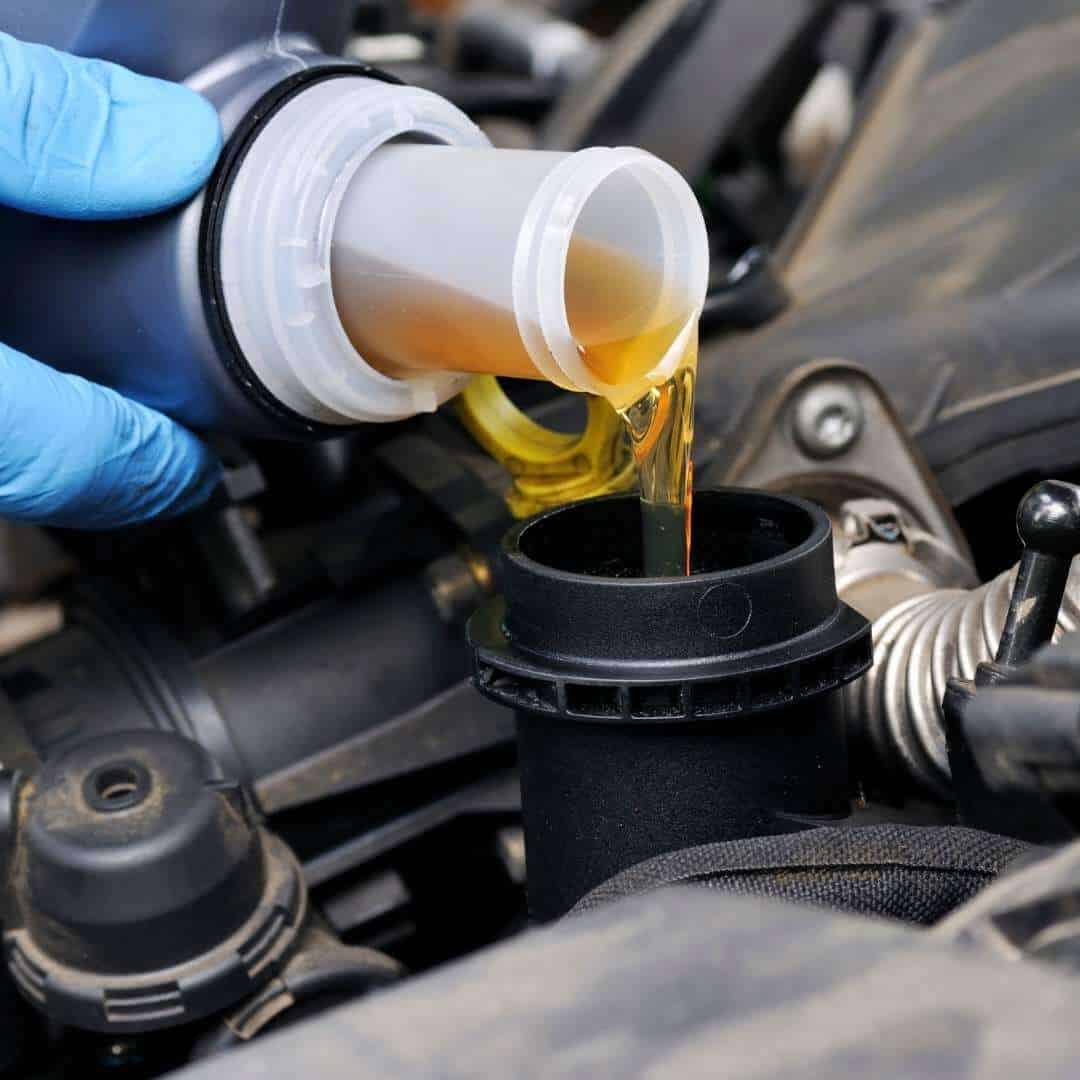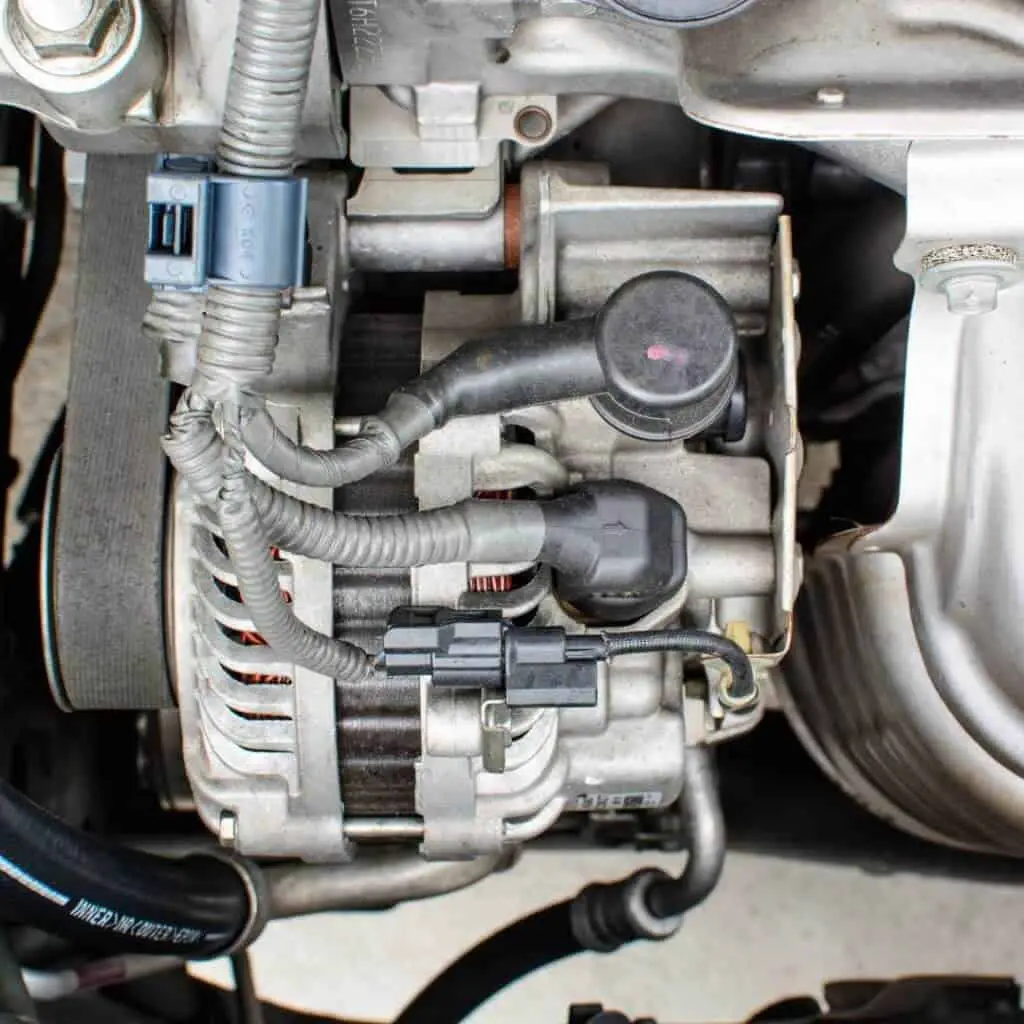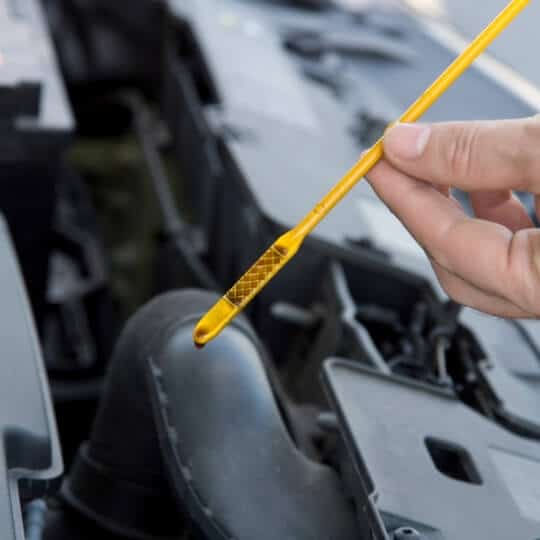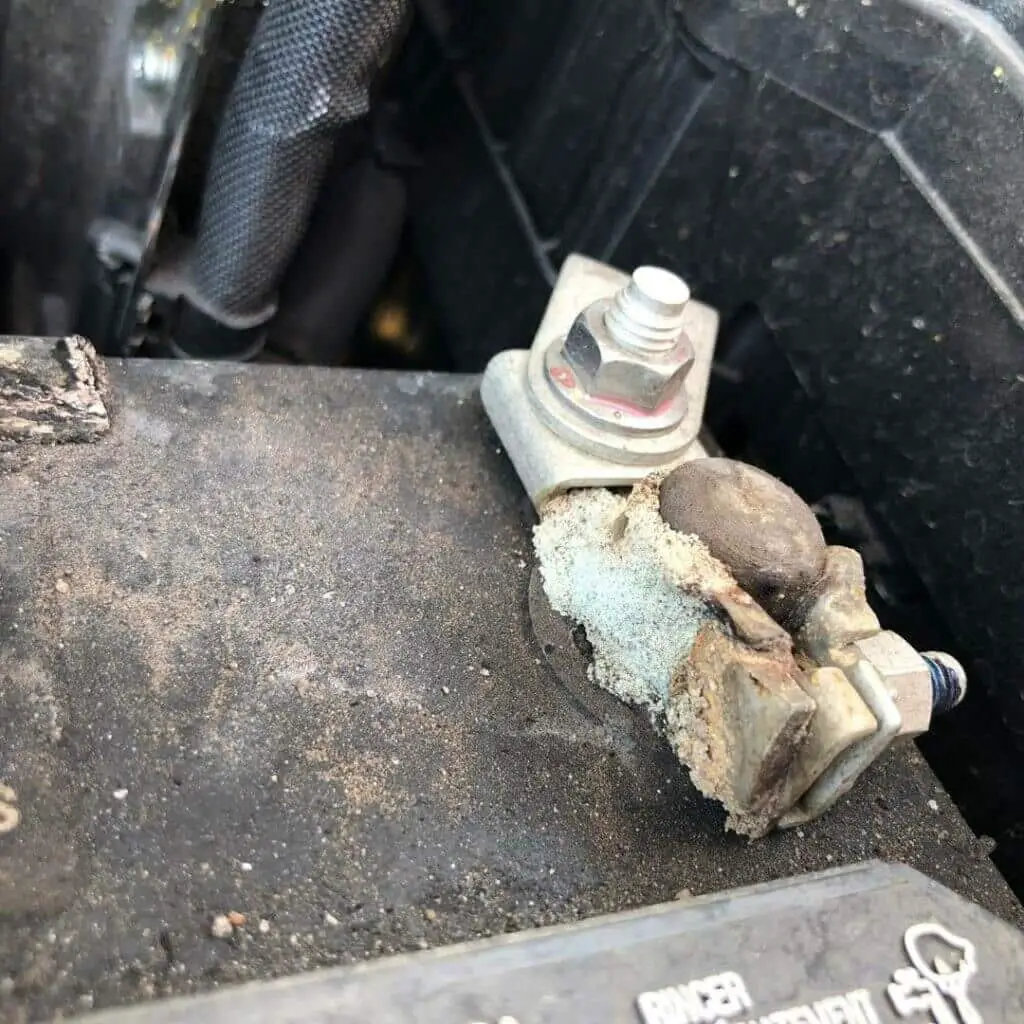Your car needs oil in order to function correctly. A good oil will prolong the engine life and save you time and money in the long run. But what happens when you notice some of the overdue oil change symptoms?
You should act fast and do everything possible to avoid further damage. If you are a responsible driver, you will check the oil occasionally. This practice will be the best way to keep your car in good shape.
Let’s see what to do when the oil becomes a problem in your vehicle.
What Are the Most Common Overdue Oil Change Symptoms?

There are many overdue oil change symptoms, and we describe them all in this article. You will learn what to do when you notice these symptoms and how to help your car function properly.
If your car does not have enough oil, or the oil is not suitable for your car engine, you may notice some problems. The first thing that you should do is check the oil level inside your engine.
There is a dipstick next to the engine, which is used to check the oil level. You can take it out, remove the oil at the top, and put it back again. When you take the dipstick out again, you can notice the oil level.
You are good to go if the oil level is between the minimum and maximum. You should add oil if the level is below the medium point. In this manner, you ensure that you keep the oil quantity at the optimum level.
When should you change the oil? It depends on your car, the engine integrated inside the car, and the type of oil your engine uses. There are many pieces of advice when it comes to oil change intervals.
However, we have some general suggestions that apply to most cars. Changing the oil in intervals between 5,000 and 8,000 miles is good.
This rule applies if you use regular oil. Some other rules are there if your car uses synthetic oil. In general, synthetic oils have a longer life and can be changed every 15,000 miles. [1]
Again, you may be looking for an oil change when your car needs it. It could be before or after the recommended interval. No matter how responsible you are, you should always see how you can protect your car.
If you can avoid oil change overdue damage, you are on the right track to driving your car for a long time.
How to Recognize the Overdue Oil Change Symptoms?

First, you should know what happens if your oil change is overdue. You may notice some unfamiliar sounds, and there might be some smoke from the exhaust system.
If you notice these and other symptoms, you can be sure your car has engine oil problems.
Some of the most common overdue oil change symptoms are:
- Hard starting
- Burnt smell
- Loud noise
- Exhaust fumes
- Dark oil
- Bad fuel economy
Hard starting can signify other problems except for the overdue oil change issues. However, if your car is hard to start, you may blame the oil.
If you are sure that the oil is not the reason for the hard start of the engine, you can check other things. There might be issues with carburetors, injectors, or other car parts.
The burnt smell is another symptom of overdue oil change problems. If you notice a burnt oil smell in the car’s cabin, you must take adequate steps to prevent further damage.
A burnt smell indicates the situation when the oil in the engine is dripping on hot engine parts. You should change the oil immediately and stop further damage to the engine parts. At the same time, the old oil can cause overheating, leading to engine collapse.
Loud noise is the thing that you can notice when you start your car or during the acceleration. The loud noise occurs when there is friction between the moving parts inside the engine. This situation is one of the most apparent overdue oil change symptoms.
You may notice loud noise when the oil is not lubricating the engine parts adequately. If you hear this kind of noise, it is necessary to change the oil in your car.
Exhaust fumes are dark in color and smell bad, and these fumes are not a good sign. This might be the symptom of the wrong oil inside the engine. At the same time, the fumes can be a symptom of oil leaks inside the engine, which is not a good situation.
If you notice bad exhaust fumes, you must act accordingly and change the oil that is inside your car.
Dark oil could be a problem in itself. When you notice some black engine oil symptoms, you must check the oil inside your car and replace it if necessary. The oil inside the engine has the function of removing the sludge and buildups.
When the oil is dirty, it can form another layer of dirt among the engine parts. That is why you need fresh and clean oil to prolong the engine’s life.
Bad fuel economy happens when your car engine oil is too old. It will start acting up inside the engine and will not lubricate the engine parts adequately. As a result, your engine will need more fuel to function correctly.
All of these overdue oil change symptoms are very obvious, and you can notice them quickly. Some other signs are less visible, and these are usually less dangerous.
In any case, you can notice that something is wrong with the oil if you start seeing some of the signs mentioned above.
How Long Can You Drive With Overdue Oil Change?

You can drive up to 500 miles with an overdue oil change. More than that will put stress on your car engine, and your vehicle will be at risk of damage. It is a recommended driving range for most cars.
The oil change is a subject of debate for many reasons. Some drivers believe they do not need to change the oil if they occasionally drive their cars. But this is not true.
Even if you drive your car occasionally, you must change the oil at least two times a year. It is the same rule that applies to the vehicles that are driven every day. [2]
In general, oil tends to deteriorate in quality over time, so you need to check it out regularly. Every five months, the oil needs to be changed. This practice will prolong the lifespan of your car engine, and it will protect the interior parts of the engine.
If you are unsure when exactly to change the oil, go for the car’s manual information. In the manual, you might see that the oil should be changed after 5,000 miles. You can easily go for 6,000 if your engine is in good condition.
In modern cars, you have the notification light on a dashboard that says how long you can go without an oil change. When the light is on, it is time to change the oil.
It is not safe to drive more than 500 miles with an overdue oil change, and the light on your dashboard will signify this.
Does Needing an Oil Change Affect Gas Mileage?

Yes, oil change affects gas mileage. You can increase your car’s gas mileage if you change your oil regularly.
The oil will be clean, and it will protect the engine adequately. When the oil is fresh and clean, it will lubricate the engine parts properly. At the same time, it will allow the engine parts to consume less energy because there will not be any debris and dirt inside the engine.
If you change oil at regular intervals, you will decrease the need for gas. The engine will work more efficiently and will need less gas to deliver the power.
When the oil is inside the engine for too long, it starts to form a sludge that can be very harmful to the engine. The sludge obstructs the oil and the sludge closes the passages where the oil should circulate. As a result, the engine performance is decreased, and you get an engine that does not deliver the power in the full range.
Also, if the oil has gathered dirt and water, it will be difficult for the engine to function correctly. The dirt will accumulate, and you will have to face some engine problems. [3]
When you do not change the oil regularly, your car is at risk of failing the vehicle emission test.
It is well-known that dirty oil produces harmful hydrocarbons in the engine. These buildups are usually present in the crankcase, and this part of the engine is especially prone to damage.
If the oil is not good, the engine will burn more gas, and it will result in more pollution. At the same time, the engine will need to work harder, and the interior parts will be under much stress.
What Are the Other Factors That Affect Gas Mileage?

There are many other factors that affect gas mileage. First of all, there is a way that you drive your car. If you are an aggressive driver, your gas mileage will be increased. At the same time, if you drive your vehicle in a traditional way, you will save more gas, and your gas tank will be fuller.
Other factors like the terrain that you drive in and the distance you pass play an essential role in your gas consumption.
Also, the gas mileage will increase if you drive your car in cold and harsh weather. In general, vehicles that are operated in cold weather tend to spend more gas than cars that are used in normal weather conditions.
Short trips also waste a lot of gas. If you drive your car to the local supermarket that is near your home, and if you do this often, the gas mileage will increase. The short trips are especially dangerous to the engine if the weather is cold.
The traditional engine warm-up before the ride is not as good as you think. It may increase gas consumption, and it can be very harmful to the engine.
Excess weight is another factor that wastes a lot of gas. If you put a lot of load in your car, this will significantly decrease gas efficiency. Experienced drivers try to remove the excess weight and save the vehicle from heavy loads.
Large objects and heavy loads are not suitable for any vehicle. In general, vehicles should not carry more than 300 pounds of people and goods inside the car.
Driving on mountains, hills, and rough terrain could be another reason why the vehicle uses more gas than usual. The car will use more gasoline if the terrain is uneven and bumpy.
All these factors that affect gas mileage also affect the oil change practice. The more your engine works, the more oil it needs.
As a result, you need to ensure that you put in quality oil that is good for your engine and provides adequate lubrication.
Read Next: How Long Can I Run My Car With Too Much Oil
Conclusion
You should take care of your car and change the oil at regular intervals. In this manner, you will prolong the engine life and give your car complete protection. There are many overdue oil change symptoms, and we described them all.
If you are a responsible driver, you will change the oil every 5,000 miles if you use regular oil. If your car runs on synthetic oil, there are intervals of up to 15,000 miles.
You should always check the engine performance no matter what oil your car uses. The condition of your car will be noticeable when you start your car or when you accelerate. If you notice any strange symptoms, you must act accordingly.
Do not ignore the overdue oil change symptoms, and keep your car engine safe at all times. In this manner, you will make sure that your car engine is in excellent shape. As a result, your car will serve you well for a long time.




